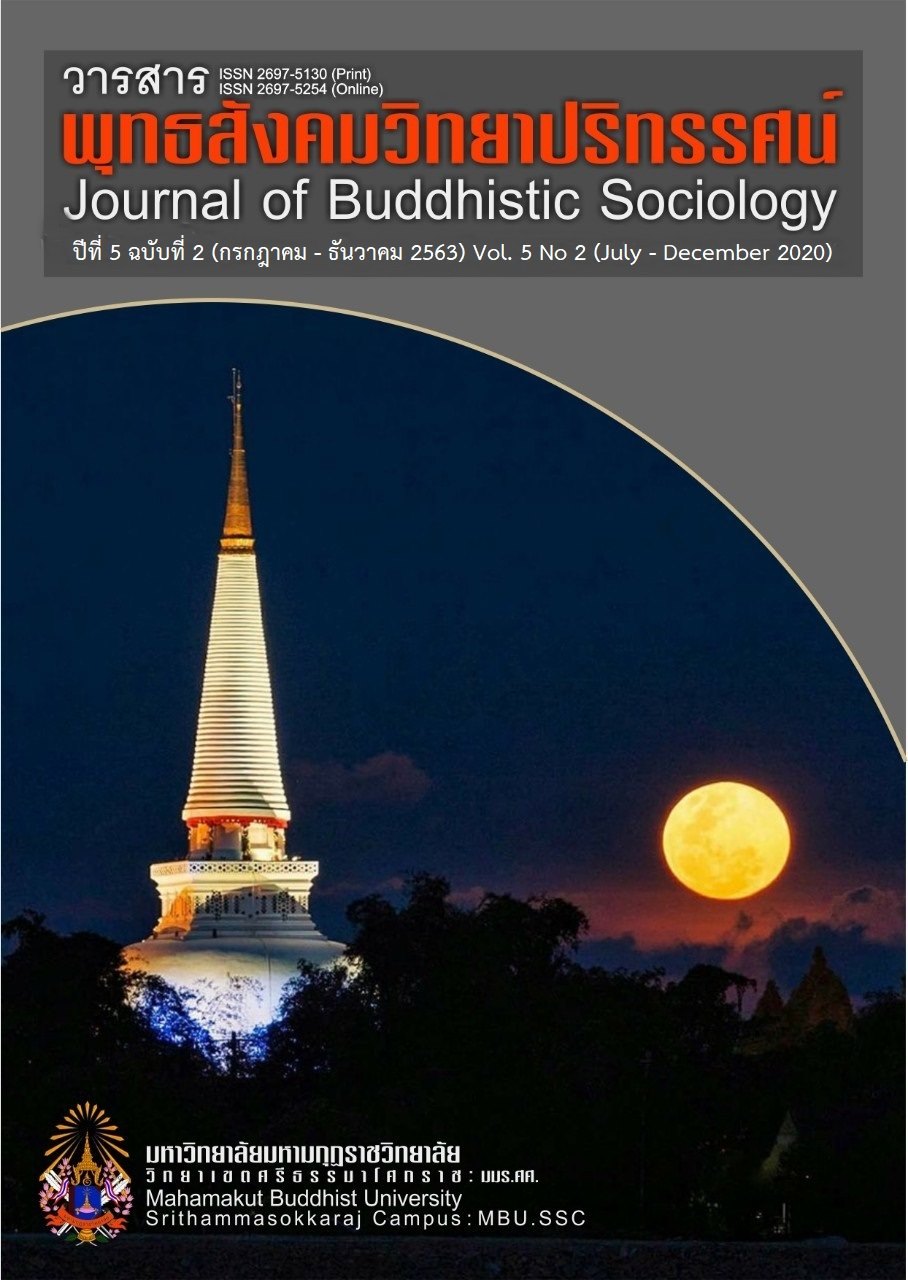A STUDY OF VALUE CHANGES IN THAI SOCIETY THROUGH THE THAI COUNTRY SONGS
Main Article Content
Abstract
ABSTRACT
The purpose of this research were to study (1) Values in each period of Thai society through Thai country songs. (2) Factors that affect values change in Thai society in each period. (3) Problems, obstacles, and suggestions for the conservation of Thai country songs. This research was a qualitative research, using research techniques which were document any research, content analysis, in-depth interviews, life history studies and focus group. The groups used in the study were 337 Thai country songs, 10 key informants in the in-depth interview and 8 experts in focus group. Tools used in the research were an analysis of values in each period of Thai society through Thai country songs, an analysis of factors that affect values change in Thai society in each period and also interview forms and focus group issues.
The findings can be summarized as follows
1. The mental values were reflected through the Thai country songs of all 4 ages when brought to compare by using the early era as the main. It can be seen that in the golden age, mental values were reduced compared to the early ages. The values that do not appear in the golden age were the values of equality and the value of economy. In the age of the light-colored dancer concert, the mental values decreased compared to the early age and the golden age. The values that do not appear in the light-colored dancer concert were the values of equality and the value of economy. The values of common interest and values about unity, for the digital age, the mental values have decreased a lot compared to all the past generations. The values that do not appear in the digital age were values about generosity, kindness, sacrifice, values about equality, patriotic values, economical values, the values of common interest and values about unity.
2. There are 5 material values reflected through Thai country songs. The values were values about appreciation of extravagance, values about measuring social prosperity with utilities and modern things, values about popularity, a career that provides good income, the values of admiration for rich and famous people and the popularity of happiness through electronic devices. When compared by using the primary age, it can be seen that in the golden age there were material values that did not appear to be the value of enjoying happiness through electronic tools. In the age of light-colored concert dancers, the material values that did not appear were values about popularity, a career that provides good income. For the digital age, material values that were invisible values about popularity, a career that provides good income like the era of light-colored concert dancers.
3. There are 6 factors that cause changes in values in Thai society. The factors that cause the most change are social factors and the least changing factor is the natural factor.
4. Problems, obstacles and suggestions for preserving Thai country songs found that problems and obstacles come from the songs, singers, songwriters, music listeners, journalists, capitalists and companies. Including related organizations. For suggestions is to solve problems and the obstacles that result from the above causes by integrating together.
Article Details
References
จตุพร ศิริสัมพันธ์ และสุรพล วิรุฬ์รักษ์. (2553). เพลงลูกทุ่ง ใน สารานุกรมไทยสำหรับเยาวชน โดยพระราชประสงค์ในพระบาทสมเด็จพระเจ้าอยู่หัว ฉบับเสริมการเรียนรู้. กรุงเทพมหานคร: โครงการสารานุกรมไทยสำหรับเยาวชน โดยพระราชประสงค์ในพระบาทสมเด็จพระเจ้าอยู่หัว.
จินตนา ดำรงค์เลิศ. (2533). วรรณกรรมเพลงลูกทุ่ง : ขนบธรรมเนียมประเพณี ค่านิยม และการดำเนินชีวิตของชาวชนบทไทยที่ปรากฏในเพลงลูกทุ่งไทยตั้งแต่หลังสงครามโลกครั้งที่สองจนถึงปัจจุบัน. กรุงเทพมหานคร: มหาวิทยาลัยธรรมศาสตร์.
ดำรง ฐานดี. (2559). การเปลี่ยนแปลงทางสังคมและวัฒนธรรมไทย. กรุงเทพมหานคร: มหาวิทยาลัยรามคำแหง.
ผจงจิตต์ อธิคมนันทะ. (2554). การเปลี่ยนแปลงทางสังคมและวัฒนธรรม. กรุงเทพมหานคร: มหาวิทยาลัยรามคำแหง.
ไพบูลย์ สำราญภูติ. (2543). ราชานักแต่งเพลงลูกทุ่งไทย : ไพบูลย์ บุตรขัน. กรุงเทพมหานคร: บริษัท อมรินทร์พริ้นติ้งแอนด์พับลิชชิ่ง จำกัด (มหาชน).
ศิริพร กรอบทอง. (2547). วิวัฒนาการเพลงลูกทุ่งในสังคมไทย. กรุงเทพมหานคร: เฟื่องฟ้า.
สำนักงานคณะกรรมการการศึกษาขั้นพื้นฐาน. (2553). หน้าที่พลเมือง วัฒนธรรม และการดำเนินชีวิตในสังคม. กรุงเทพมหานคร: โรงพิมพ์ สกสค. ลาดพร้าว.
สุนทรี พรหมเมศ. (2558). ทฤษฎีทางสังคมวิทยาและมานุษยวิทยา. กรุงเทพมหานคร: มหาวิทยาลัยรามคำแหง.
Robert K. Merton. (1938). Social Structure and Anomie. American Sociological Review, 3(5), 672.


